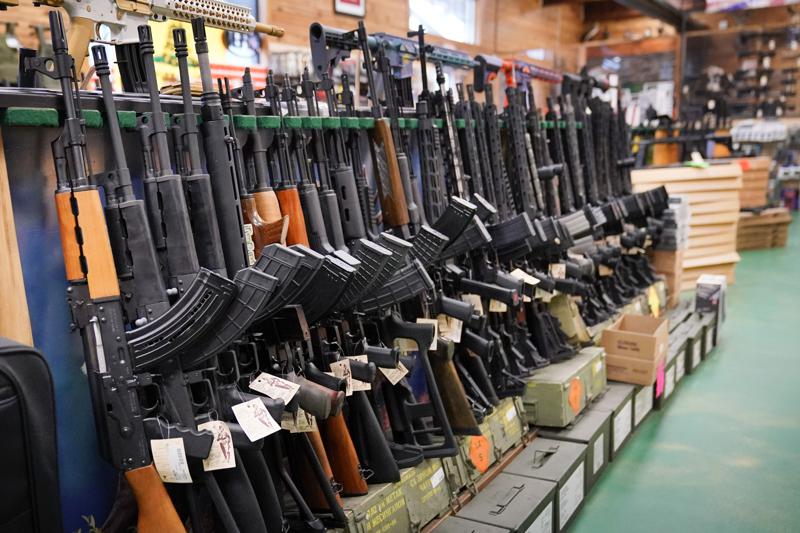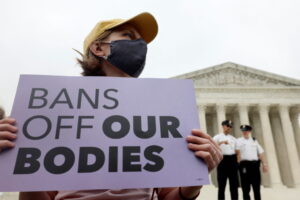Understanding the Federal Appeal on Florida’s 2018 Gun Law
What Is the 2018 Florida Gun Law?
Before delving into the nuances of the recent federal appeal, it’s critical to understand the basics of the 2018 Florida gun law. This law, a controversial piece of legislation, is aimed at regulating the sale of firearms, specifically long guns, to individuals under the age of 21.
The Tragedy that Spurred the Law
This law was borne out of a horrific tragedy, a mass shooting that took place at Marjory Stoneman Douglas High School in Parkland, Florida, in February 2018. The perpetrator, 19-year-old Nikolas Cruz, utilized an AR-15 rifle to commit this heinous crime, resulting in the death of 17 innocent students and staff members, and injuring an additional 17.
Major Provisions of the Law
In response to this mass shooting, the Florida Legislature, backed by then-Governor Rick Scott, passed a law that restricted the sale of rifles and other long guns to people under 21. Prior to this, federal law had only prohibited the sale of handguns to people under this age limit.
The NRA’s Legal Challenge to the Law
The National Rifle Association (NRA), a staunch advocate for gun rights, fiercely opposed this new law.
NRA’s Lawsuit After the Law’s Passage
Soon after the law was enacted, the NRA filed a lawsuit, challenging the constitutionality of the new age restrictions for long gun purchases.
The Original Court’s Rejection
However, in 2021, Chief U.S. District Judge Mark Walker dismissed the NRA’s challenge. He ruled that court precedents allow states certain flexibility to impose Second Amendment restrictions in specific circumstances.
March 2023: An Unforeseen Development
Despite the initial rejection, the NRA’s legal battle took a significant turn in March 2023.
The Panel’s Ruling and Its Basis
A three-judge panel upheld the constitutionality of the 2018 law. The panel based its decision primarily on a 2022 U.S. Supreme Court opinion in the case of New York State Rifle & Pistol Association v. Bruen, which stated that gun laws must be aligned with the nation’s historical tradition of firearm regulation.
Why the NRA Sought a Full Court Rehearing
Despite this setback, the NRA pushed for a rehearing by the full court. The organization questioned the panel’s historical analysis and argued that the law’s impact on hundreds of thousands of law-abiding citizens warranted a rehearing.
The Current Scenario and Possible Consequences
Recent developments have rekindled the debate around this contentious law.
The Order for Rehearing
In an unexpected move, the 11th U.S. Circuit Court of Appeals decided to rehear the case en banc, or by the full court. However, they haven’t set a date for the arguments yet.
A Renewed Legislative Debate
The court’s decision coincided with a renewed debate in the Florida Legislature about the 2018 law. The House passed a bill that would have allowed individuals under 21 to purchase long guns, but the Senate did not address the issue.
Different Perspectives on the Issue
Various stakeholders present contrasting views on the law and its implications.
Arguments for Lifting the Age Restriction
Proponents for lifting the restriction, like House debate sponsor Bobby Payne, argue that the law is a “wrong” that needs to be corrected. They emphasize that the bill would maintain other parts of the 2018 law that addressed mental health and school safety issues.
Arguments for Maintaining the Age Restriction
Conversely, critics like Rep. Christine Hunschofsky argue that the law has been effective in preventing further school shootings and plead for the age restriction to remain in place.
The Road Ahead
The ongoing legal battle and public debate around the 2018 Florida gun law illustrate the complexity of gun control discussions in the United States.
Implications for Future Gun Laws
The outcome of this case could have far-reaching implications for future gun laws and the interpretation of Second Amendment rights.
The Role of Public Opinion
Public opinion will undoubtedly play a pivotal role in shaping the future of gun control laws, making this an issue to watch closely.
FAQs
1. What is the 2018 Florida gun law?
The 2018 Florida gun law prohibits the sale of rifles and other long guns to people under 21. The law was enacted following the tragic Parkland school shooting.
2. Why did the NRA challenge the law?
The NRA believes the law infringes on Second Amendment rights, particularly of 18-to-20-year-olds, and has hence filed a lawsuit challenging its constitutionality.
3. What was the three-judge panel’s basis for upholding the law?
The panel based its decision on a 2022 U.S. Supreme Court opinion in the case of New York State Rifle & Pistol Association v. Bruen, which stated that gun laws must align with the country’s tradition of firearm regulation.
4. Why is the case being reheard?
The 11th U.S. Circuit Court of Appeals has decided to rehear the case by the full court, likely due to the NRA’s argument that the law’s impact on hundreds of thousands of citizens warrants a rehearing.
5. What could be the implications of the court’s final decision?
The final decision could have significant implications for future gun laws and the interpretation of Second Amendment rights, potentially affecting the national conversation around gun control.







